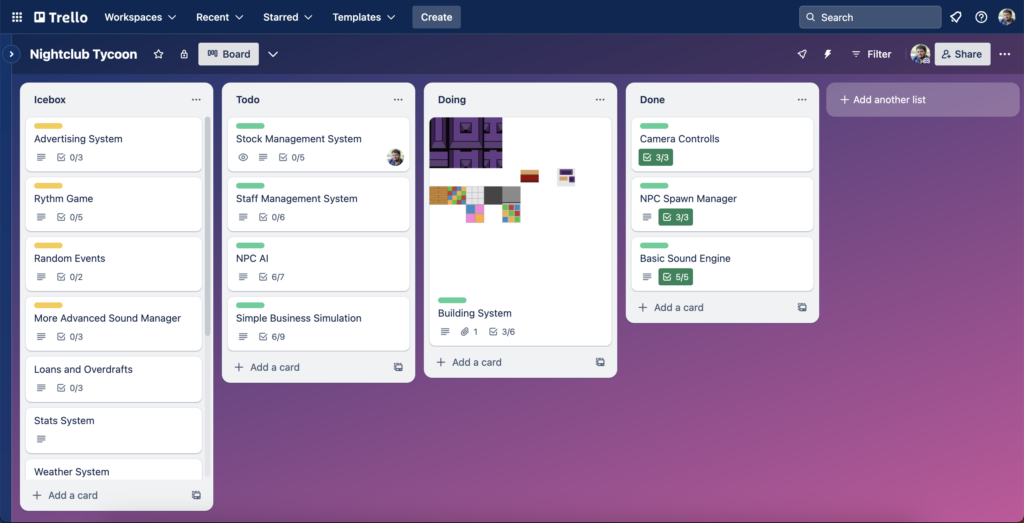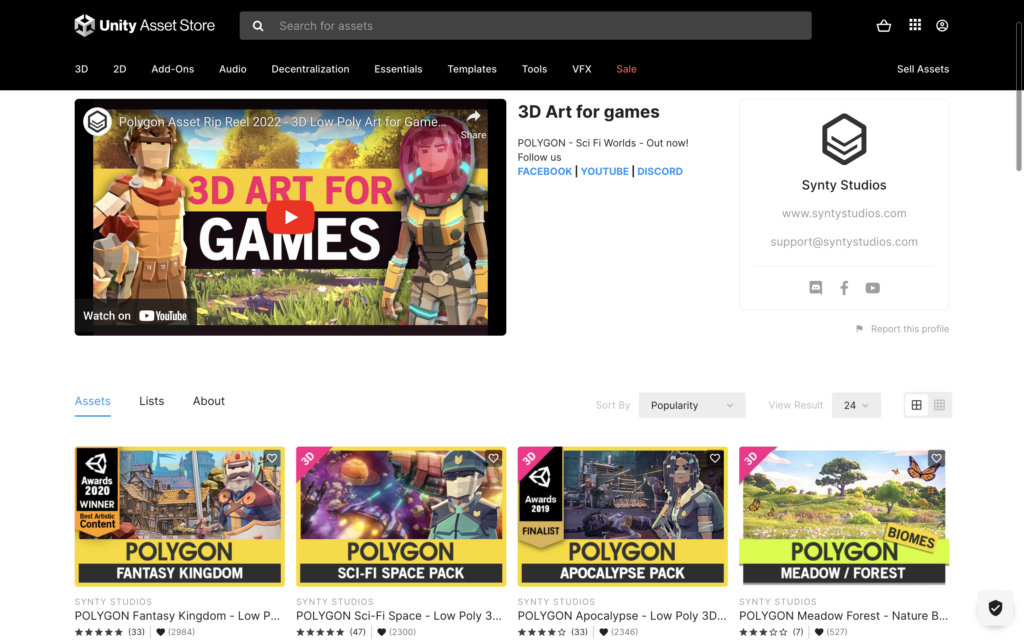Looking for Game Jam Tips? Whether you’re a beginner taking your first steps or a seasoned indie game developer seeking fresh inspiration, these pointers will help you survive and thrive in the dynamic, fast-paced environment of a Game Jam. It’s time to embrace the challenge, ignite your passion, and create something extraordinary! Let your Game Jam journey begin.
- Find Your Perfect Game Jam.
- Read The Rules Ahead of Time.
- Find Your Team.
- Make Your Thinking As Funny As Possible.
- Sketch on Paper or a Virtual Whiteboard.
- Focus On ONE Core Game Mechanic.
- Find The Fun.
- Keep Communication Channels Open.
- Make A List Of Tasks.
- Keep It Simple. Reduce The Scope.
- Use Tools You Are Familiar and Comfortable With.
- Embrace Assets to Save Time.
- It’s A Prototype, So Don’t Worry About Clean Code.
- Perfect The Jump. (If you’re making a platformer)
- A little polish goes a long way.
- Your Finished Game Doesn’t Need To Be Perfect.
- Prepare To Upload 2 Hours Before The Deadline.
- Take Breaks.
- Remember, It’s Supposed To Be Fun!
Find Your Perfect Game Jam.
Game jams come in all shapes and sizes, from 48 hour nitch meetups to global phenomena; there’s a Jam out there to suit everyone. Whether you’re an experienced jammer, a veteran of Ludum Dare, or a beginner looking for your first game jam, you need to look around for an event that’s right for you.
A great place to start your search is the itch.io game jams page, where you’ll find hundreds of exciting options. And, if you are new to game jams, check out our article: 5 Best Game Jams for Beginners.
Read The Rules Ahead of Time.
Once you’ve found a game jame that piques your interest and you want to join, make sure you read and follow the jam’s rules beforehand. Every game jam will have its own particular set of rules and requirements that jammers must follow for their game to qualify for judging.
Find Your Team.

While you can take on the challenge of a game jam as a solo developer, taking on the challenge of a game jam alone can be an exciting but stressful process, especially if you’re working with tools or aspects of game-making that are not your speciality. To make this challenge less stressful and more fun, share the workload by finding a team.
Joining a team where team members have different skills, such as code, 3D art, or graphic design, will enable you to create a game together that’s even better than you could do alone. If you are looking for teammates, check out our article: how to find a game jam team – like a pro.
Make Your Thinking As Funny As Possible.
Getting into the right mindset for coming up with creative ideas for your game can be tricky, especially when you’re under pressure. The problem is game jams are a lot of pressure, and you will want to get into making your game as quickly as possible – with game jams, anxiety comes with the territory. To overcome this, the solution to having great ideas is to make your thinking as funny as possible.

“The best ideas come as jokes. Make your thinking as funny as possible.”
David M. Ogilvy.
The idea to make your thinking as funny as possible comes from David Ogilvy, often called the godfather of advertising. While you might ask what advertising has to do with game design, both are creative occupations. Making games is supposed to be fun, so having fun with coming up with ideas is the way to go.
When we say make your thinking as funny as possible, spend your time coming up with ridiculous, crazy ideas, even ideas that you know you probably can’t build because within those wild thoughts, lives amazing inspiration, you can channel into solutions you can try to make in your game design.
Sketch on Paper or a Virtual Whiteboard.
Computers are great tools for getting things done, but inspiring creativity, not so much. For this reason, I always recommend stepping away from the computer and finding a different tool such as pen and paper, whiteboard, or, if you’re collaborating with teammates remotely, a virtual whiteboard, where you can sketch out your ideas freely.
Working through your game design and player experience and iterating on your ideas in this low-fi way is faster and easier at this stage than when you’ve committed to building them for real.
Focus On ONE Core Game Mechanic.
The drawback of game jams is that you must build your game in a short timeframe, but you probably have a ton of cool ideas for your game. Here’s the catch: all these ideas are a trap!
To meet your goal of creating a game before the deadline, you need to focus on the most important parts of your gameplay and focus on one core game mechanic for the player to enjoy. By focusing on a single mechanic, you can take the time to refine and perfect how it works without being overloaded by being pulled in 100 different directions with different ideas.
To help you find that one key idea for a game mechanic, list out all your ideas – you should have a few from your earlier sketching session. Then, with your team or alone (if you’re solo), score each item as high, medium, or low against two criteria: how much fun you think it will be for the player and how difficult it will be to implement. You should now have a short list of potentially fun, easy-to-implement features to choose from. Now, simply pick one.
Find The Fun.
Your mission as a game designer is to ‘Find the fun‘; this involves identifying the aspects of gameplay that make it truly enjoyable for the player. Focus on creating an engaging, immersive and fun experience. Experiment with different mechanics. Keep testing and refining your game until you find those elements that captivate and entertain the player; that’s where the real ‘fun’ and success of your game lies.
Keep Communication Channels Open.
If you’re working as part of a game jam team, especially in a remote setting, it’s important to keep communication channels open. Tools like Discord can help you stay connected, ensuring everyone stays in the loop. It’s super handy when you want to share new ideas or address potential issues.
It’s a good idea to have some rules about team communication when you start working together. Communication via tools like Discord is asynchronous, meaning you can’t expect each other to respond instantly. Team members each have their own lives and may need to step out to handle personal things like a bathroom break or to get a drink or snack.
Make A List Of Tasks.

Game development is complicated. Breaking down your game idea into a list of tasks to be done is a boring but essential step in creating your game in an organised way. Even if you’re a solo dev, it’s important to be organised. Basic project management will really help your team to minimize friction and stay productive. A tool like Trello, Monday, or Notion is ideal for managing your tasks. Your game development task list should include all the work needed to make the game’s functionality and content, like art or narrative elements.
Keep It Simple. Reduce The Scope.
One of the key factors in being successful in a game jam is to keep it simple and reduce the scope. This is about recognizing the limited time frame and ensuring that the scope of the project is achievable so it can be completed successfully. Your task list should be realistic and manageable. Prioritise the ‘must have‘ elements of your game and focus on those first. Leave the additional features, even if they seem enticing, for when the core game components are fully functioning.
Use Tools You Are Familiar and Comfortable With.
During a game jam, use tools that you are familiar and comfortable with. Whether it’s a game engine like Unity, Unreal, or Game Maker, use what you know best. You don’t want to spend all your time working through tutorials when you’re on a deadline; a game jam is all about efficient and focused development.
Embrace Assets to Save Time.

If the rules of your game jam allow it, embracing assets can save valuable time. Instead of creating every element from scratch, you can utilize pre-existing music and art from asset stores. Renowned artists like Kenny offer lots of free assets, including audio, 2D & 3D art, and textures. Using pre-made assets allows you to focus more on gameplay and innovation.
It’s A Prototype, So Don’t Worry About Clean Code.
If you’re a programmer like me, don’t stress over writing perfect, clean code and elegant systems. It can be tempting to get bogged down in programming reusable systems and ensuring code is clean, but it’s a trap!
Writing good software takes time, time you likely don’t have. Game developers need to create prototypes of their games during jams. With a prototype, you’re goal is to implement a feature as simply as possible and move on. You can, of course, go back and refactor your code later. Or even reimplement features – after the jam!
Perfect The Jump. (If you’re making a platformer)
Platformers are a simple type of game; the core feature of a platformer is movement, specifically the jump. Many game creators fail to make time to fine-tune mechanics such as the jump in their games, not just in platformers. Taking a little time to play test your game during development and tune the core features is key to making your game feel good to the player. So, take a little time to tune these elements when you can.
A little polish goes a long way.
Once you have the core mechanics and are ready to test your game, play it and ask yourself, how fun does it feel? There are numerous ways to polish your game and make it feel more fun; it may be tweaking script variables or level design changes. But one of the easiest and most impactful ways to polish your game and make it feel more fun is to add Juice – Game Juice.
Game Juice refers to the small, subtle elements that are added in a game for a more pleasurable experience. These elements, such as sound effects, animations, visual effects, feedback, haptic feedback, etc., can make the game feel more responsive, impactful, and satisfying. Essentially, they’re the little things that make the games feel “juicy”.
For example, if your game is a platformer with an exploding platform mechanic, you could juice it up by adding some sound, a particle smoke effect, and a little screen shake. Adding Game Juice to your game makes it feel more alive and fun to play – enhancing the overall gaming experience.
Your Finished Game Doesn’t Need To Be Perfect.
Your project is ideally a short game prototype; it doesn’t need to be perfect. The odd bug here and there is acceptable. Focus on fixing the critical errors, but minor bugs can wait. The most important thing is to finish your game as a working prototype.
Prepare To Upload 2 Hours Before The Deadline.
They say time flies when you’re having fun, and oh boy, that submission deadline will creep up on ya. So, to ensure a smooth time landing, set your alarm clock to wrap up your game early. I’d advise starting a build and preparing an upload at least 2 hours before the deadline.
Why two hours before? Well, things can, and often do, go wrong right at the last minute: game engines fail to compile, your Internet connection fails, your computer crashes, the game jam website crashes. So, it’s best to give yourself enough time to upload the game, double-check for any errors, and still have time to play the game and make any last-minute adjustments if necessary.
Take Breaks.
It’s normal to feel some pressure to deliver your game within the deadline, and it can be tempting to go all out and forgo sleep and instead mask tiredness with caffeine – please don’t do this! Most game jams run for at least a couple of days, so if you’re feeling tired or burnt out, take a break. Take a nap, get away from the computer screen, go outside and get some fresh air, maybe get a healthy snack or meal. Ignoring your body and pushing through exhaustion is a bad idea; look after your mental and physical health. After taking a break, you will feel refreshed and be able to focus better and think clearer. Remember, game jams are not as important as your well-being.
Remember, It’s Supposed To Be Fun!
Game jams are a creative challenge; they can be rewarding experiences where you have the opportunity to collaborate with cool people on a project you love. But jams can also be a lot of pressure and stress, especially when things don’t go right, with bugs, or maybe falling out with your team – not to mention the time pressure. Despite all this, don’t forget – it’s supposed to be fun! So, try not to take it all too seriously, and have fun. If things don’t go quite to plan, there will be other jams. If you don’t finish your game in time for the submission deadline, you can still complete the game after the jam and share it online for people to play and enjoy outside of the jam. Just remember to have fun.
